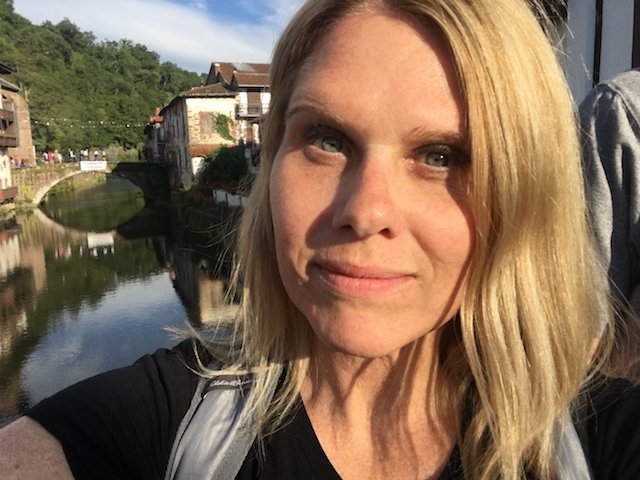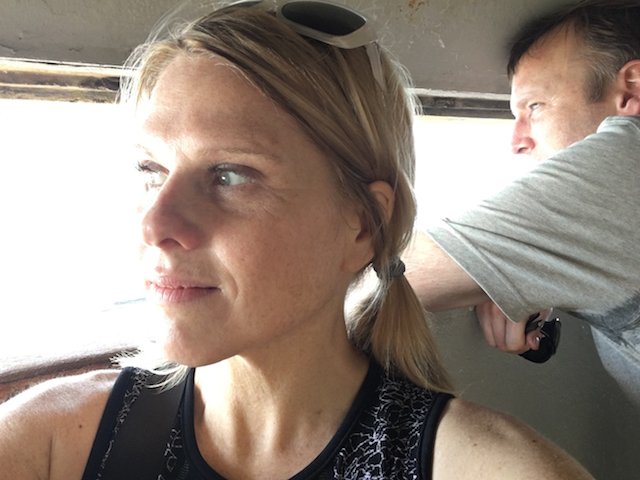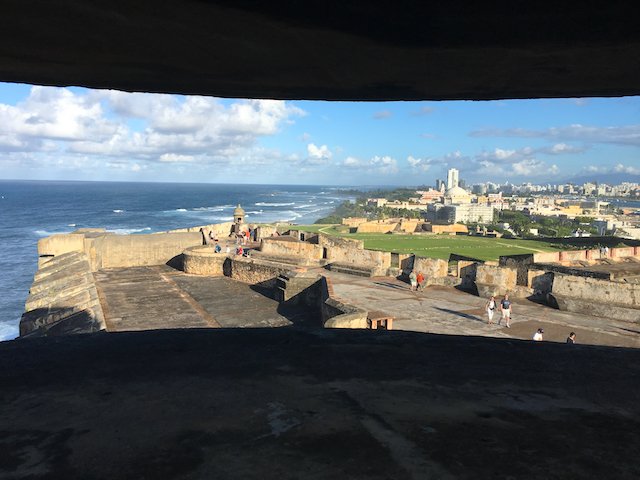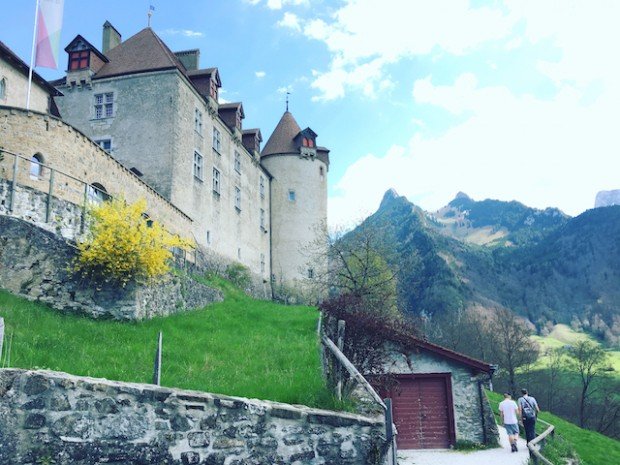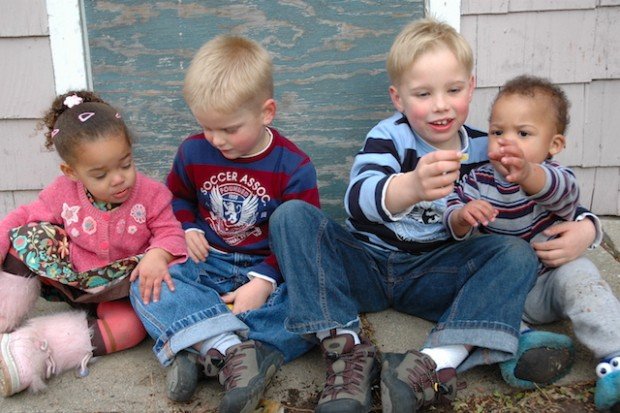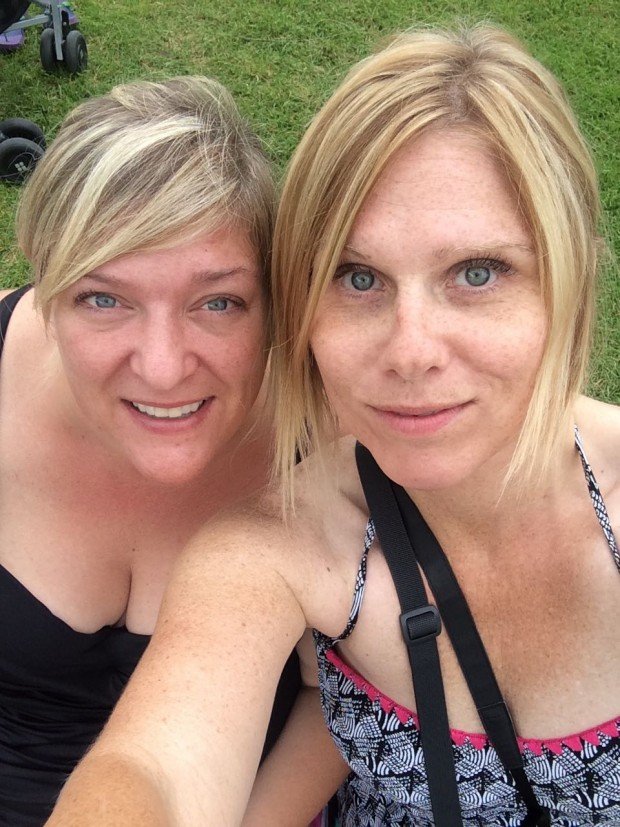For like twenty years, on and off, I have been working on my memoir. Really. Stops and starts. That is what it has been. I test the waters. When I do write about a family member, or suggest to family that I might be writing my story, I am often met with pushback and threats. I shut up. Like I am trapped in a sinking car, I want to breathe so I stop writing. As I surface, I realize that my words want to come out. Honestly, I wish my family understood that this is my story, yet I don’t expect them to. I don’t want to share their secrets or make my story them about them. Instead, I offer them grace. I take deep breaths. I go to therapy. I write privately. When I do freak out or worry about being sued, (yes, I have been threatened), I think of the words of writer Anne Lamott:
We write to expose the unexposed. If there is one door in the castle you have been told not to go through, you must (open the door)…You can’t do this without discovering your own true voice, and you can’t find your true voice and peer behind the door and report honestly and clearly to us if your parents (or siblings) are reading over your shoulder. They are probably the ones who told you not to open that door in the first place. You can tell if they’re there because a small voice will say, ‘Oh, whoops, don’t say that, that’s a secret,’ or ‘That’s a bad word,’ [Instead]…Write as if your parents (and siblings) are dead.

I have lived another entire lifetime since I first had a story I wanted to tell. I married. We had two beautiful sons. My heartaches like infertility, suffocating loss, and serious health crises have (hopefully) filled me with compassion and the ability to confidently and lovingly share my truth. I have taken that time to learn how to set boundaries and break cycles. I am a work in progress. I know my past lurks in the shadows, and like cocaine in the 1980’s, it begs me to repeat its dysregulated patterns.
In 2020, out of things to sanitize and masks to buy, I started getting serious about my life story. We (like the world) were stuck at home. In our case, our eldest son was ripped from his dreamy Sydney, Australia Study Abroad. His girlfriend, who was studying away in Paris, was also forced to leave. She moved in. A month later, our youngest graduated from high school in an eleven minute drive-through ceremony at a local park, including a picture with his principal and returning his cap and gown correctly on the hanger on the rack situated on the park lawn.

We were (still) trapped at home. As the parent, (whatever that means), I tried not to make things worse. Our house was really clean, especially our kitchen counters, which I repeatedly washed out of sheer boredom and maybe germs. Our pandemic-addition was nearly complete, which included expanding our master bedroom and the one below. Out of counter spray and maybe a little loneliness, one morning I began digging through our storage. I happened upon my old journals. I picked one up and began to read from February 11: “Today is Dad’s fiftieth birthday. Two weeks ago he told Mom he doesn’t know if there is a God.” I read on and was hooked. A few pages later—April of that year—I wrote, “Well, Mom and Dad are really getting a divorce.”

That night I told my husband about hours I spent reading. Enthusiastically he urged: “These are primary source materials. Use them in your memoir!” It had never occurred to me that I could use the assistance of my childhood journals to tell my own stories. I said right out loud: “Dude, you are a genius!” I decided to see how I could infuse my journals into my story.
Of course. See, it was my mom who taught me about journals. After spending the day reading and reflecting, I wondered if Mom used her journals to record the bad feelings and fear of God, the obvious echoes of her own trauma. Nevertheless, in the corner of our dusty storage room it was clear that Mom’s own trauma and journal-keeping were ingredients in what I would call my epic narrative; a crucial ingredient like flour or eggs.
As I read, in a flash of big “I am being followed down a dark alley” feelings, memories of my past flooded in. I felt the dread of Mom’s constant, “I have a bad feeling. Did you pray?” I continued reading as my ominous feelings were validated: “Mom” literally had a “bad feeling.” I thought about my mom. I wondered if her need to feel safe and in control were constant, and were easily reflected in her daily rituals and routines, like writing in her journal, reading her scriptures each night and kneeling in prayer.
I recalled seeing her, scriptures open, reading and highlighting.
She would explain, “The Mormon prophet and leader of our church proclaimed that for us to receive Heavenly Father’s blessings we need to read the scriptures for at least thirty minutes a day.”
Once she finished her thirty minutes, she meticulously brushed her teeth, made her way into her room, knelt at her bedside and said her prayers. “The prophet has also asked us to pray for thirty minutes each night. I can’t let him down.” I often found her asleep, still kneeling at her bedside.

The part of her routine I was most intrigued with was her commitment to journaling. Journaling wasn’t just a novelty, quirk or affectation. It was my mother’s adherence to a specific admonition from our church leaders. Before her scriptures and prayers, Mom, dressed in a flannel nightgown, found her way to a quiet corner, which usually was our upstairs yellow and brown-colored, plaid couch. Holding a ballpoint pen in her left hand, (I am also left handed), I watched as she began writing words in a large notebook:
“Mommy, why are you writing in that book?” I asked.
“I don’t always remember everything. I want to keep a record of our life. Our prophet has asked us to keep a journal. I want to follow the teachings of our Heavenly Father.”
I felt Mom’s urgency to follow God’s commandments. Consequently, when I was seven years old I asked Mom for my own journal.
“Oh Bethy, Heavenly Father will be so proud of you.”
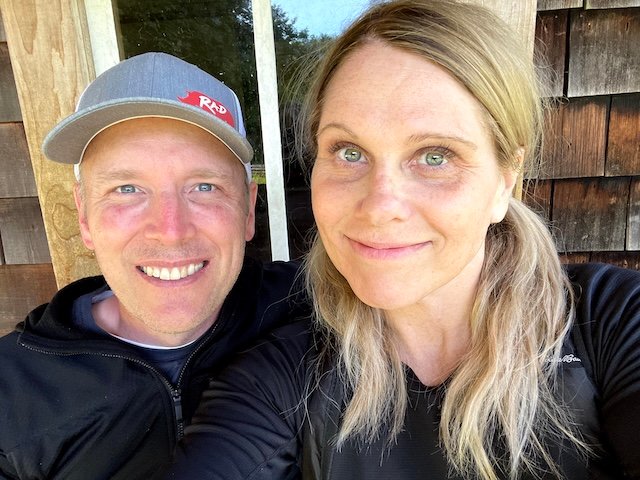
Then one day she handed me a journal. I hoped God would take note. Writing came naturally. So did processing the world around me.
In what some might call “exhausting detail,” I logged my daily life. When I did not log my life, I felt like I was letting God down.
Picture a piece of lined notebook paper. There are two to four words per line with twice as much space in between each word. The page is positioned in a 1.5” mustard yellow spiral ring binder, next to a cardstock cover of a bible coloring book called, “The Life of Daniel,” (You know, Daniel, the guy in the Bible saved by God as he sat in the Lion’s den.)
My first journal entry:
“This is the story of my life. When I was four I moved in a new house. It was fun but sometimes I was sad…”

Out of some obligation to God, or probably because I really enjoyed it, I never stopped journaling. I wrote what I saw or wanted to know, which led me here to sharing my story. As I did research for this memoir, I followed through and reviewed thousands of pages from my hand-written diaries, from that very first journal entry to the laptop I write in today. Through the years, my life’s experiences have been edited, mellowed and recontextualized into the memories that live in my head. As I read my writing, my own primary sources, including pages that I may not have read since the moment I wrote them, I have come to learn that my actual memories are much softer than the words I found hidden on those pages. Not only had I forgotten many painful, horrible events, the experiences I did remember have been worn smooth, illuminated with compassionate light.

As I read my childhood journals with a grown up understanding, I am amazed at all the buried, dark family secrets and revelations that have emerged. Truths were waiting in plain sight, if not always in plain language. I wrote around the brokenness. I left out the specific details, like how loud I screamed or how many times I cried myself to sleep or woke myself up in a cold sweat.
In my case, my writing became less about fulfilling an obligation and more about me. What I observed, which I am still trying to reckon with, is that I wrote about my traumas so casually that it was as if expressing them were as normal as blowing your nose—as mundane as watching television with an old remote control. I wonder if me of yesterday hoped that me of today would be able to decode those empty, clearly identifiable spaces shaped exactly like each specific trauma. I am here to say, “I think so.”
This became my writing practice: I watched. I observed. I processed it. I could not stop taking it all in. I loved taking it all in. I analyzed and deconstructed everyone and everything as a means to understand the world around me. I talked about what I saw: “Mom, did you see the man on the street? He was wearing a brown shirt and green striped pants. He wasn’t wearing shoes. I wonder if he is cold.” Mom was a great listener. After I exhausted my voice, and probably my mom’s ears, I wrote everything down.
My journaling is vivid. I am curious. I am interested. I love human behavior. I love how people interact. I absolutely love human connection. As such, I receive the world through the lens of relationships. Asking my mom and dad about sex at the dinner table as a nine-year-old completely made sense and had no bearing on the fact that my two older brothers and three older sisters were sitting around that table with me. I would also argue that there is a human need to construct and reconstruct which gives voice to our story, authority and ultimately healing to our lives. Ultimately, with all my observations and questions answered and then recorded in my journal, my journals have become the reliable narrator in my story.

I am grateful for Mom’s desire to journal all those years ago and my desire to follow suit. Without those decades of record keeping, I don’t think that I would have a good understanding of the events that shaped me and set me on my course, and I would not be able to understand my own mind, my personality, or my family dynamic as well today.
By the way, I certainly do not claim to be the world’s best writer, observer, human, wife, mother, sister, daughter or friend. I am a storyteller. We are human. I am human. I believe that we are here to heal, to forgive and to learn. This is my hope.
More to come…

